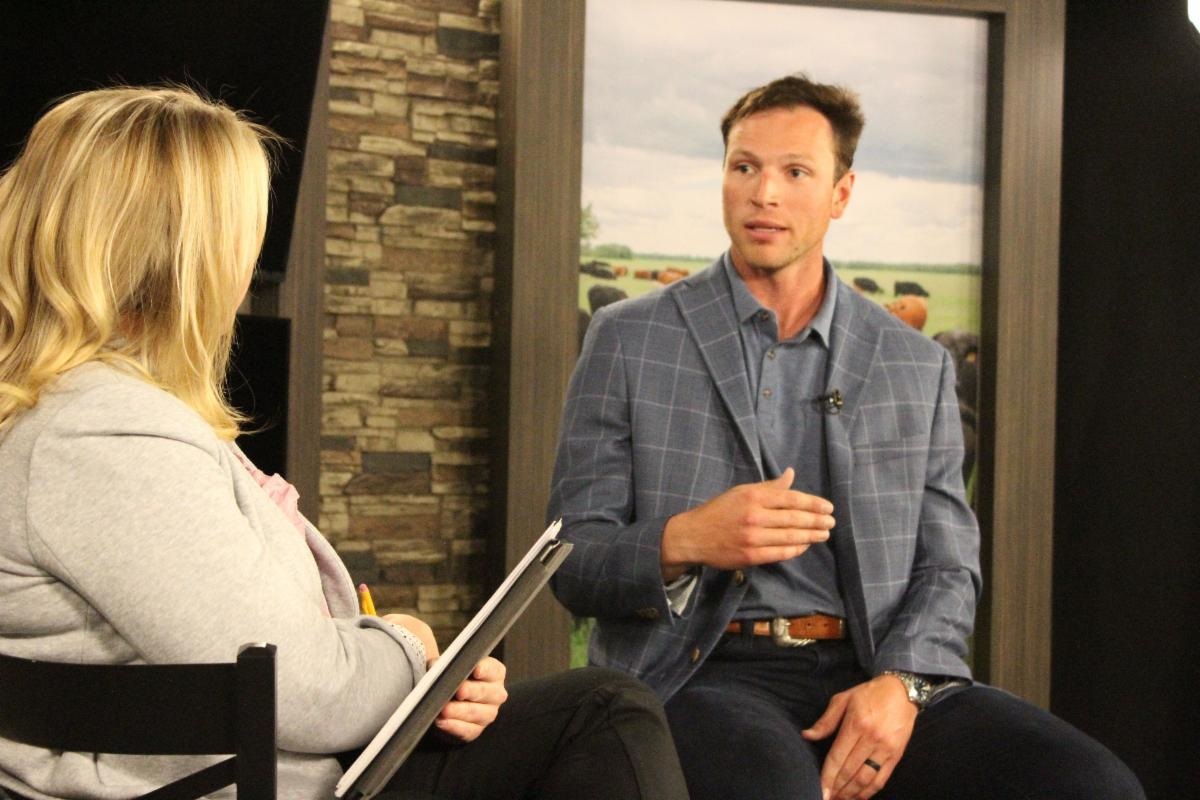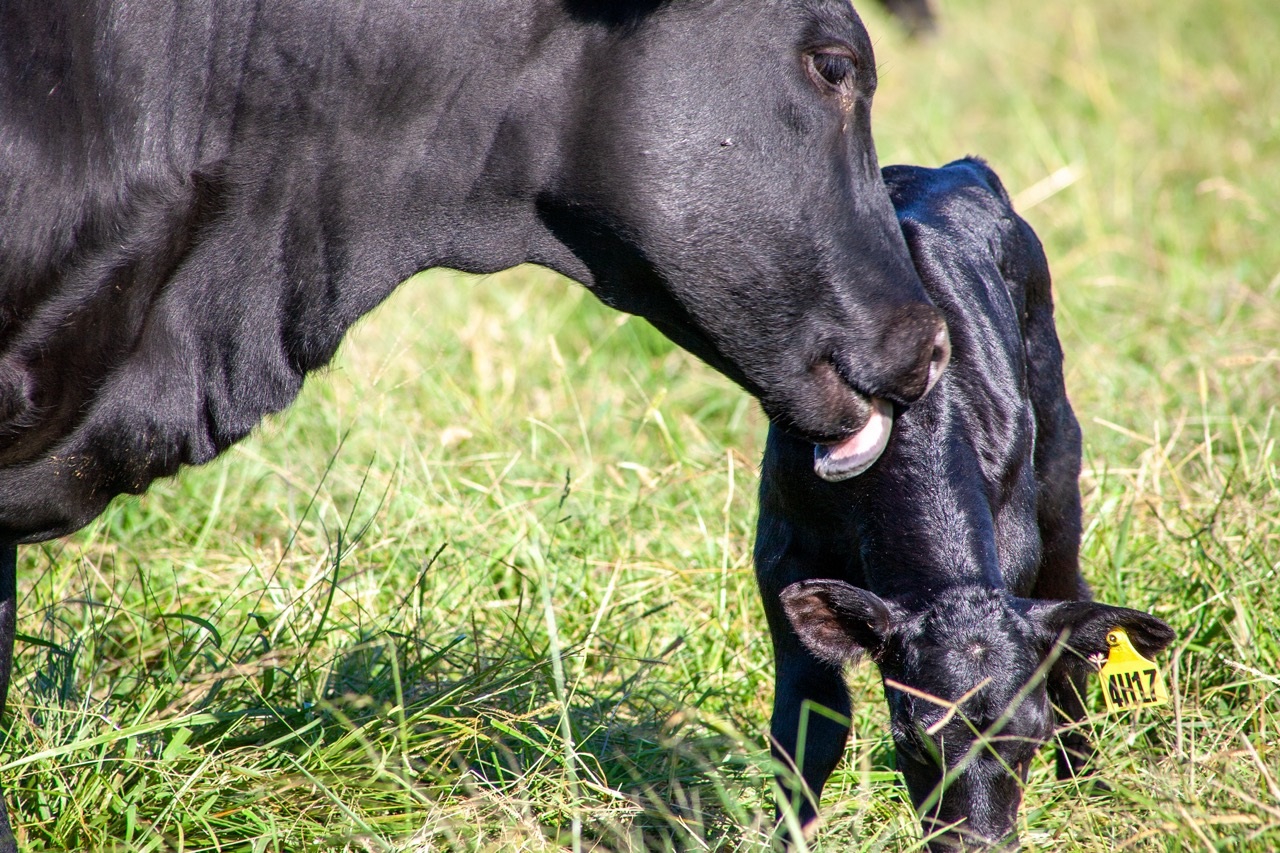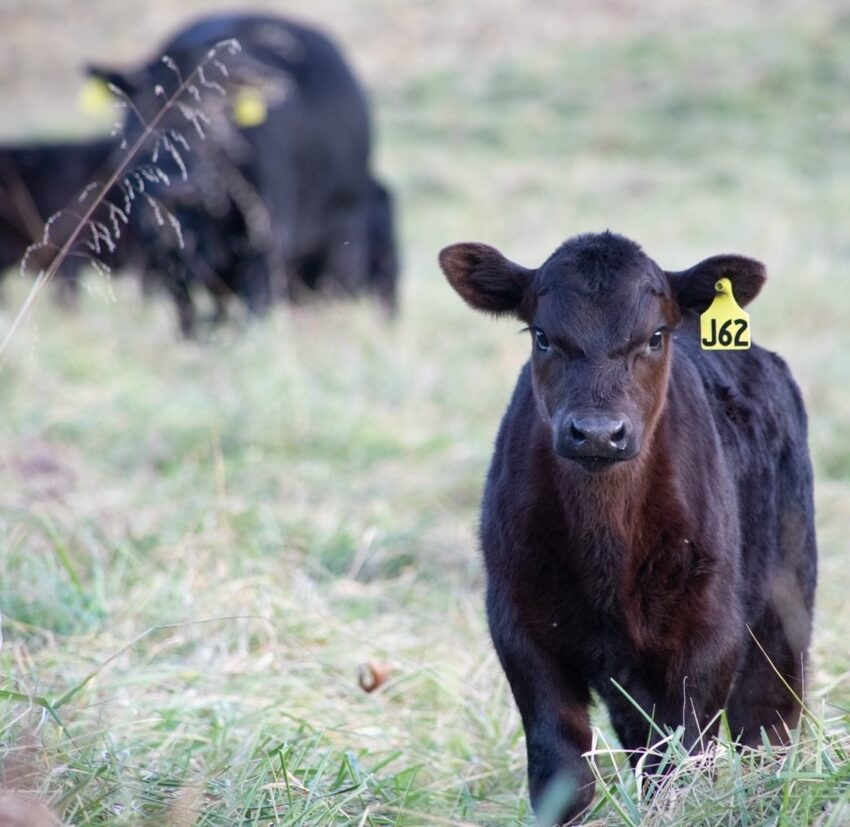
Agricultural and resource economics alumnus (’13) manages a thriving family cattle operation while balancing innovation, economics, and industry leadership
Where are you from, and why did you choose to attend the Herbert College of Agriculture?
I am from Smiths Grove, Kentucky. Our farm is an hour north of Nashville on Interstate 65, 2 miles from the new Buc-ee’s. I wanted to attend a school that was a reasonably close drive to the I-65 corridor of Kentucky. When I visited Tennessee in October of my final year of undergrad it was easy to fall in love with the campus. The faculty and support staff at UT were very welcoming and more than happy to help me carve my own path when it came to finding the right fit within the program.
What degree did you pursue and why?
I earned a master’s in agricultural and resource economics from the Herbert College of Agriculture at the University of Tennessee, Knoxville. My undergrad work was in economics at the University of Louisville. I grew up on a multigenerational beef cattle operation so it was a natural fit. My research focus was in production economics.
Can you tell us about your current job and what a typical day in your life looks like?
I work full time, and have since 2013, at Oak Hollow, a multigenerational family operation. We raise Angus cattle and have two bull sales each year. I manage the routine care of the cattle as well as marketing, data processing and evaluation, managing our employees, customer interactions and sourcing inputs for the farm. There really isn’t a “typical” day. We take care of the cattle to start the day then address the most pressing job next.

What do you enjoy most about the work you do?
My day to day is always changing depending on the time of year, so the variance definitely keeps it from ever being boring. I also learned early on in grad school that I needed an “outside” job. I got my wish. I would say I am outside and working at least a few hours nearly every day of the year.
What are some of the biggest challenges you’ve faced as a cattle producer, and how have you addressed them?
Working in the production side of agriculture, you realize just how little control you have of things. Obviously, weather, markets and many other factors are outside my control. The biggest challenge is managing all of the challenges in concert with one another. A bad cattle market with high feed costs and tough weather during calving season is obviously not ideal. Figuring out what is the best decision to make in the short, medium and long term for the cow herd and for the operation is the hardest thing I have to do when I encounter significant challenges. In the Department of Agricultural and Resource Economics graduate program you must develop critical thinking skills or you will not make it through the program. The same can be said of production agriculture.
Can you share how your studies in agricultural and resource economics at UT impacted your life and career?
I obviously am not an economist, but majoring in economics teaches you to think like one at least on a basic level. I think approaching the cattle operation from that perspective makes me more equipped to better handle the ever-changing landscape of production agriculture.
Are there any faculty or staff at the Herbert College of Agriculture who made a difference in your educational experience?
I was Dr. Chris Boyer’s first graduate student. Dr. Andrew Griffith and Dr. Gary Bates were also on my thesis committee. They all made learning and navigating graduate school a conversation instead of a lecture. I found that to be true of most the faculty during my time at UT.
What advice would you give to students or recent graduates interested in starting their own agricultural businesses?
I think there will actually be many opportunities for recent graduates to transition into an ownership role of an existing business. The average age of a typical producer is relatively old. Many farmers in our area utilize non-family labor. I would definitely advise students to reach out while they are a student to production operations to see if they would be willing to take on an intern or even a recent graduate. Outline your background and goals in the initial conversation and tell them how working with them would further those goals.
As agriculture undertakes a significant turnover in ownership of both the land and the business in the coming years, there will be a lot of opportunities to find yourself in a turnkey operation with an aging ownership and manager that would most certainly rather the enterprise continue than be sold for parts. Don’t be afraid to have open and honest conversations.

I would also say don’t underestimate the value in direct to consumer opportunities. A high-quality Direct-to-Consumer (DTC) product will always be in demand, especially in highly populated areas. My wife and I direct market high end, dry aged freezer beef in Louisville, Kentucky. If you are working in production agriculture, the margins generally aren’t there to generate a competitive salary with other job openings post-graduation. However, part-time “side hustles” such as that are a great way to bridge the income gap between graduation and undertaking greater responsibility within an operation. Many have even found that part time business profitable enough to make it the full-time business.
What is your proudest professional (or personal – or both!) accomplishment?
I have had the opportunity to be included in many prestigious programs in the beef industry including Beef Leaders Institute with the American Angus Association, Young Cattlemen’s Conference with National Cattleman’s Beef Association, and most recently the Trailblazers Advocacy program through the beef checkoff. Additionally, I served three years as the chairman of the Kentucky Beef Council. I would be remiss if I didn’t say my wife and son are also two of my proudest accomplishments.
What do you like to do outside of work and/or what is a fun fact about yourself?
I work outdoors and like to spend my free time outside as much as possible as well. While we are most definitely not an “outdoorsy” family, my wife and I find ourselves out on the lake, taking a walk, or sitting on the back patio outdoors as much as possible with our son. The entire family can’t stay indoors for very long.
While working with beef cattle is a physically demanding job, I still like to get an intentional sweat in at the gym every morning to start the day. That daily habit started with access to the Student Recreational and Fitness Center (TRECS) during graduate school. While I don’t have time to lift in the morning and play pickup basketball in the afternoons like I did in grad school, I definitely won’t pass up a game of HORSE with the neighbor kids when I am passing their driveway.
